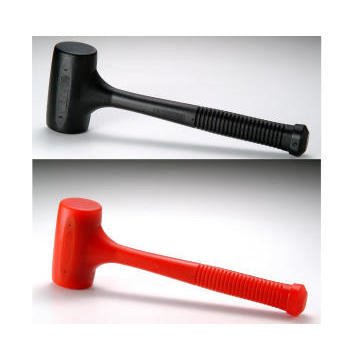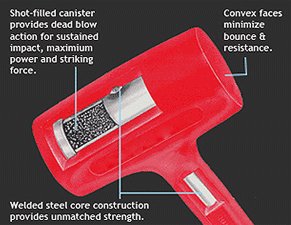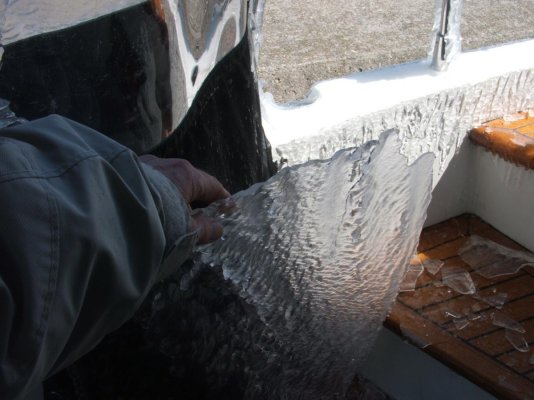mattkab
Senior Member
I had a boating nightmare the other night. No big deal... except that for the past few days I've been thinking more about it, and I really have no idea what the proper course of action would be if it happened in real life. I'm hoping folks here would engage in a bit of a thought experiment regarding it.
So here's what happened:
I was taking my boat out on an extremely cold day. As we were cruising, a storm front came through, and the waves built up. I was too far from the coast to make it to port, and started driving through the swells.
As the spray from the swells landed on the deck and superstructure, it froze, and continued to build up until, in dream-land, the boat capsized and sank.
I've seen picts of boats with substantial buildup at the dock, so I assume it can happen while under way. But maybe this is not logical in real life, and ice-buildup is not a real issue? Or at least not to the extent that there would be any danger?
Or is it a real, possible (though improbable) danger in winter cruising? If so, how would a normal cruiser, stuck in these situations, handle substantial ice build-up? I've been thinking of it for days and can't come up with a decent plan of attack.
Thoughts?
So here's what happened:
I was taking my boat out on an extremely cold day. As we were cruising, a storm front came through, and the waves built up. I was too far from the coast to make it to port, and started driving through the swells.
As the spray from the swells landed on the deck and superstructure, it froze, and continued to build up until, in dream-land, the boat capsized and sank.
I've seen picts of boats with substantial buildup at the dock, so I assume it can happen while under way. But maybe this is not logical in real life, and ice-buildup is not a real issue? Or at least not to the extent that there would be any danger?
Or is it a real, possible (though improbable) danger in winter cruising? If so, how would a normal cruiser, stuck in these situations, handle substantial ice build-up? I've been thinking of it for days and can't come up with a decent plan of attack.
Thoughts?






